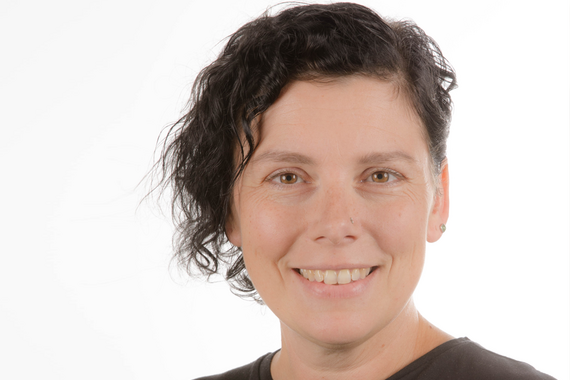-
The University
- Welcome
- Who we are
- Media & PR
- Studying
-
Research
- Profile
- Infrastructure
- Cooperations
- Services
-
Career
- Med Uni Graz as an Employer
- Educational Opportunities
- Work Environment
- Job openings
-
Diagnostics
- Patients
- Referring physicians
-
Health Topics
- Health Infrastructure

Hörgang podcast with Christine Moissl-Eichinger
The human microbiome is a fascinating, complex ecosystem and much more than just a collection of bacteria. A previously underestimated yet critical role is played by the archaea—microorganisms that have long remained in the shadows. Christine Moissl-Eichinger, head of the Interactive Microbiome Research area at the Medical University of Graz, and her team have made important discoveries that open up new prospects for microbiome research and personalized medicine.
Archaea—the underestimated inhabitants of the human microbiome
Archaea are unicellular microorganisms that were originally known as extremophiles in volcanic biotopes or salt lakes. The latest research has shown that they are also an integral part of the human body—especially the skin and the gut. Christine Moissl-Eichinger's team was able to show that above all methanogenic archaea, which produce methane, play a central role in the gut microbiome. They process hydrogen, a byproduct of bacterial fermentation, and thus increase the efficiency of microbial digestive processes. In this way, they help stabilize the microbial balance in the gut.
Discovery of a new archaea species in the human gut
A scientific milestone has been reached with the culture of a previously unknown species: Methanobrevibacter intestini. This newly discovered representative is the second most common archaea species in the human gut after Methanobrevibacter smithii.
Now that it has been successfully cultured in the lab, it is possible to conduct a detailed investigation of its biochemical features and its influence on metabolic processes and health. This discovery creates the foundation for a better understanding of the functional significance of archaea in the human body.
Archaea as indicators of health and disease
Research shows that archaea are generally associated with a healthy microbiome and a lower body mass index. They appear less frequently in individuals with certain diseases—for example inflammatory bowel disease. These observations make archaea potential biomarkers for the stability of the microbiome. At the same time, studies show that locally higher concentrations of archaea may occur in individuals with gum disease and colorectal cancer, for example, where they seem to support the activity of specific disease-promoting bacteria. Thus archaea might be indicators of as well as active players in disease—a fascinating field for future research.
Communication via vesicles—a new field of research
Another discovery that was made is that archaea communicate with their environment via vesicles—small sacs that transport signal molecules. These vesicles contain proteins, lipids and amino acids that may also have an effect on distant organs such as the brain. These findings pave the way for new research approaches for medical application, for example as carriers for vaccines or therapeutic substances.
Vision for the future: manipulation of the microbiome by archaea
In the project ARCH-METH, which is funded by an ERC Advanced Grant, Christine Moissl-Eichinger's team is working on better understanding and exploiting the central role of the archaea in the microbiome. Their vision: personalized therapies based on targeted modulation of archaea that promote health, regulate metabolic processes and lower the risk of disease. The archaea are coming to the fore of a new era of precision microbiome therapy.
Research in space—the microbiome at the ISS
In addition to this human medical research, the team also investigated the microbiome at the International Space Station. The analysis has shown that the microbial communities there are mostly influenced by the human skin and have adapted to a more humid environment—without the appearance of any particularly dangerous pathogens. These findings provide a valuable basis for health care for astronauts on long-term missions, for example to Mars.
Hörgang podcast with Christine Moissl-Eichinger
In our cooperation podcast with Springer Nature, Martin Krenek-Burger talked to Christine Moissl-Eichinger about the role of the microbiome as well as her research project and the relevance of the ERC Advanced Grant for the Medical University of Graz. The entire podcast is available here: www.springermedizin.at/meduni-graz/molekulargenetik/archaeen-im-mikrobiom/51508808.
More information
Univ.-Prof.in Dr.in habil.rer.nat.
Christine Moissl-Eichinger
Christine Moissl-Eichinger
Diagnostic and Research Institute of Hygiene, Microbiology and Environmental Medicine
Medical University of Graz
T: +43 316 385 73770


